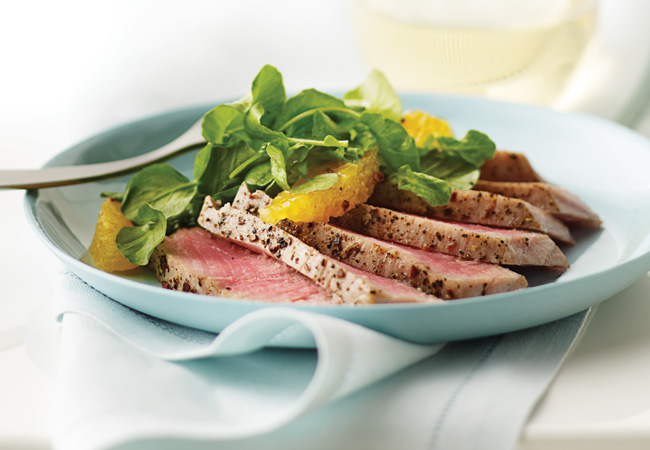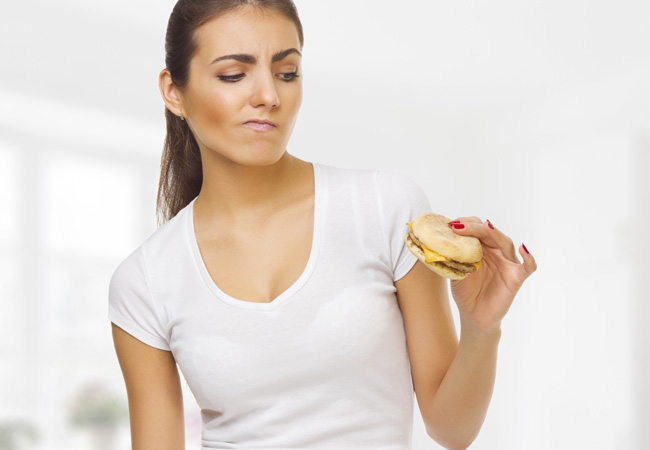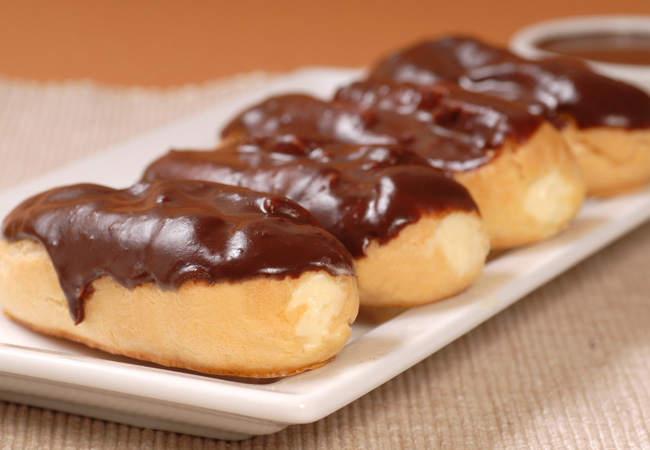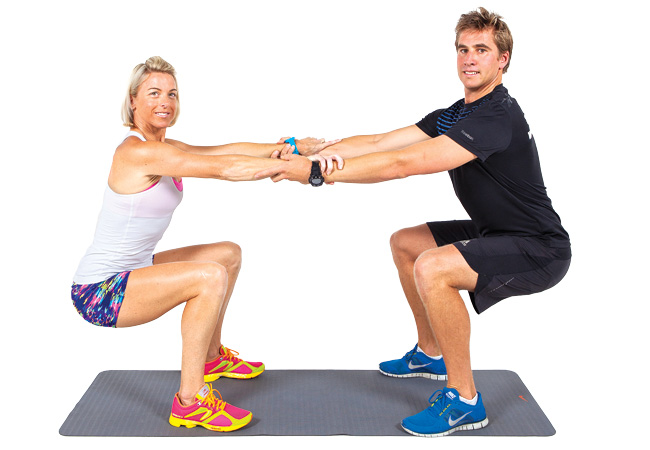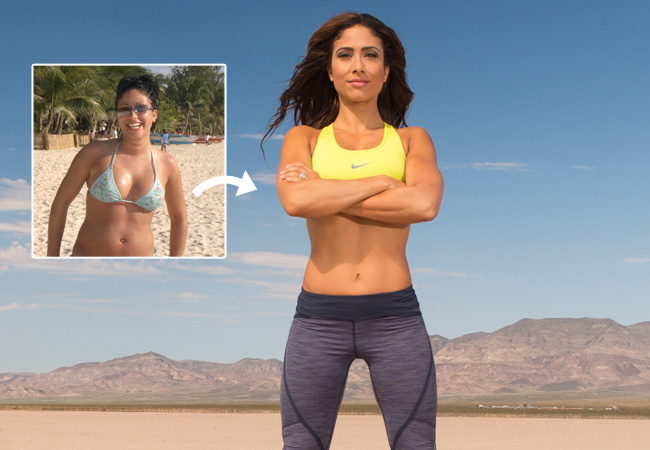
You don’t have to give up your favourite foods to lose weight, says fitness coach Theresa Jenn Lopetrone.
Having been overweight, Theresa Jenn Lopetrone (pictured) empathises with women who feel the only path to being good enough is slavishly following prescribed – often extreme and punitive – formulas.
“Our industry has gone far in the wrong direction but now it’s time to re-teach and redefine what makes women healthy and fit and it comes down to how we feel/perform and how balanced and happy our mind is,” she says.
We caught up with Lopetrone for a crash course in maintaining the balance and the body. Here are 7 diet myths she disproved:
1. You have to give up alcohol
You don’t have to give up wine or your fav cocktail in order to meet your goals but you do need to keep in mind that alcohol needs to be consumed in moderation just like other treats. If your alcohol isn’t consumed in moderation, you will run up major calories and end up craving unnecessary munchies. With having more drinks than you need you run the risk of overeating, racking up extra calories, and not feeling your best the next day, which will more than likely lead to excusing yourself from the gym.
The same goes for sweets. I take great pleasure in mindfully eating chocolate and cake. I don’t eat them every day, but there’s no reason you can’t have one serving on the weekend if you’ve been consistent with eating clean and active all week long. The key is to plan what treat you want and what day you will eat your treat. If other temptation comes along it’s easier to turn it down because you already have a plan of when you will enjoy your dessert. Also, I think it’s important to eat treats like this mindfully and really be present with what you are eating so you can fully enjoy it and feel satisfied.
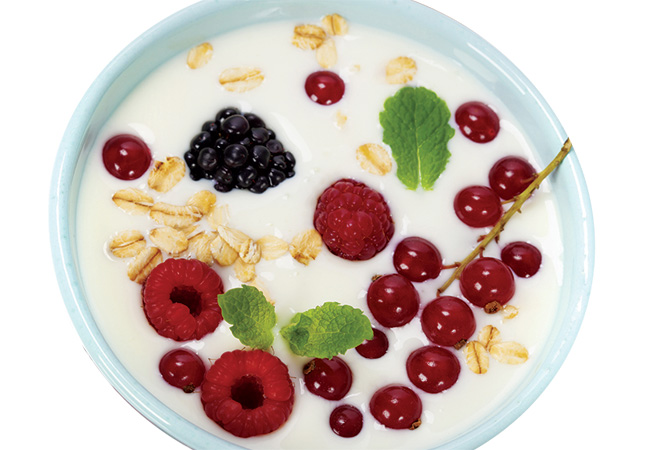
2. You have to give up dairy
I’m Italian and naturally I love cheese. I always thought I needed to give up cheese in order to make physical changes but this isn’t the case. It is true that you do need to be aware of what types of cheese you eat and the amount. But if you choose a light cheese like BabyBel Light you can work one portion in every day. In fact you can even have yourself a clean grilled cheese sandwich if you want!
Like everything else you can still eat those richer cheeses on occasion and in moderation.
Here’s my recipe: Heat your pan on medium, brush coconut oil on the outside of two slices of sprouted grain bread, place one slice of bread in the pan (oil side down), add one serving of BabyBel Light cheese shredded or sliced on the slice, and place the other slice of bread on top with the oil side out. For an extra kick you can add hot sauce inside on the cheese and even sliced avocado.

3. You can’t drink coffee
I often read in magazines that people trying to lose weight should cut out coffee. I didn’t really understand why, but what I figured out over time is that we don’t need to cut out coffee; it’s the cream and sugar that we add to it that needs to be cut out. I need my one to two cups of coffee every day. I used to drink my coffee with cream and sugar and eventually switched to skim milk and sweeteners, but now I am proud to say that I have trained myself to drink my coffee black. I have adapted to the taste and in fact I prefer it this way now. I religiously drink one cup of coffee or espresso before I hit the gym every morning.
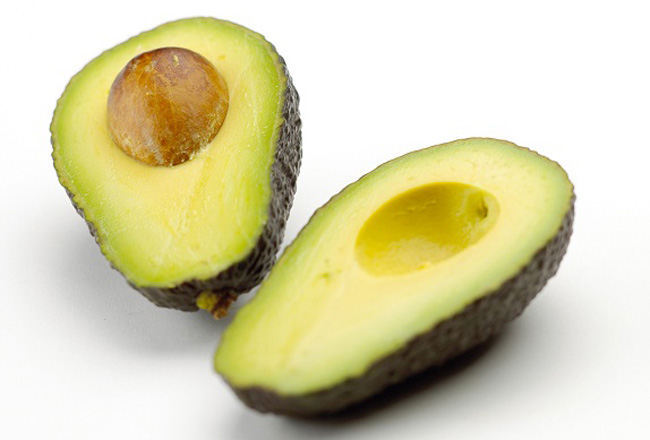
4. All fats are created equal
For years of my life I steered clear of eating fats, even healthy fats! I believed that all fats were equal and that is certainly not the case. I stayed away from essential healthy fats from nuts, avocados, seeds, and oils. Our body needs healthy fats to function, lose fat, and to improve our mood. I proudly will admit that eating peanut butter makes me a happier person.

5. Eating less equals losing weight
Before I understood the body’s relationship with food I thought by eating less I would lose weight. I didn’t pay any attention to what I was eating but I thought if the portion was smaller than it would be to my benefit. WRONG!
For example, I vividly remember working at my mall job in early university and instead of getting a turkey sandwich on break, I opted for something that was smaller in size, a white bagel with processed cheddar cheese and chocolate milk. If you are eating clean you will realise that you can eat much larger portions of healthy food as opposed to junk food. In the end it’s not worth it to fuel your body with junk because that’s how your body will run.
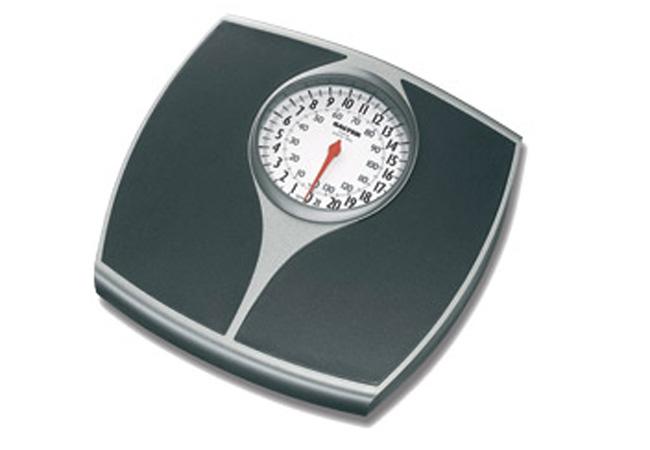
6. Checking your weight keeps you on track.
After learning about how to tweak my diet from health and fitness magazines, I thought it was time to focus on eating food for my health and not for losing weight. I decided to stop allowing the scale to dictate my worth and ditched it for one month. To my surprise I dropped 2.5 kg in one month just from eating healthy. I didn’t give the scale permission to make me feel insecure or stressed because of some silly number.
If you are going on transformation journey then I think it’s important to take photos of yourself, measure your body, and see how your clothes fit. You do need a few types of assessments during your journey as ‘proof’ because sometimes our minds play tricks on us and we don’t realise how far we’ve come. Even now, on the days when I don’t feel like I have made enough progress, I force myself to look at old photos of mine to see how much my perseverance and dedication has paid off.
You should be proud of every step you take no matter how small. Sometimes you will take five steps forward and 3 steps back and that’s okay because it’s part of your journey and your learning process. If you want your change to become lifelong then you will always need to make mistakes and learn from them. You are human, not perfect, and I am where I am today because of the lessons my mistakes have taught me.

7. Exercise has to hurt
I knew that in order to become healthy and fit I would need to find a physical activity that I enjoyed. I didn’t know what this would be because I disliked all forms of exercise, but I knew I couldn’t be the only person in the world who disliked exercise. So I began to try any and all classes at my gym and outside of my gym. I tried, Pilates, spinning, yoga, running, hiking, cardio machines, circuit training, weight lifting, step classes, aerobics, and finally I found CrossFit. For the first time I found an activity that motivated me, that made time fly by, and that mentally and physically challenged me in a fun way. I made a commitment to myself to attend this class three days a week and I even signed up for one on one training once a week. I did this for about a year and before I knew it my body had made drastic changes.
My pant size went down, I began to see triceps, and the beginning stages of abs. Friends of mine asked me if I had lost 15-20 LBS but I didn’t and I told them this but no one believed me. What was eye-opening about this experience was the fact that I dropped pant sizes, looked 7.5 to 10 kg lighter but in fact had only lost 2.5 kg. This is when I learned that my body fat percentage had dropped significantly during the year and when I really realised that the number on the scale isn’t as important as the way your clothes feel and the way you feel in your own skin. My advice is to find an activity that leaves you feeling good after each session. I can’t promise you that you will like this activity the first or second time but you do need to give it your best effort and try it a handful of times before you can fully decide. Know that being active is a crucial part of your physical improvements, but more importantly your mental transformation.
5 easy ways to burn calories at work>>
Words: David Goding
{nomultithumb}

